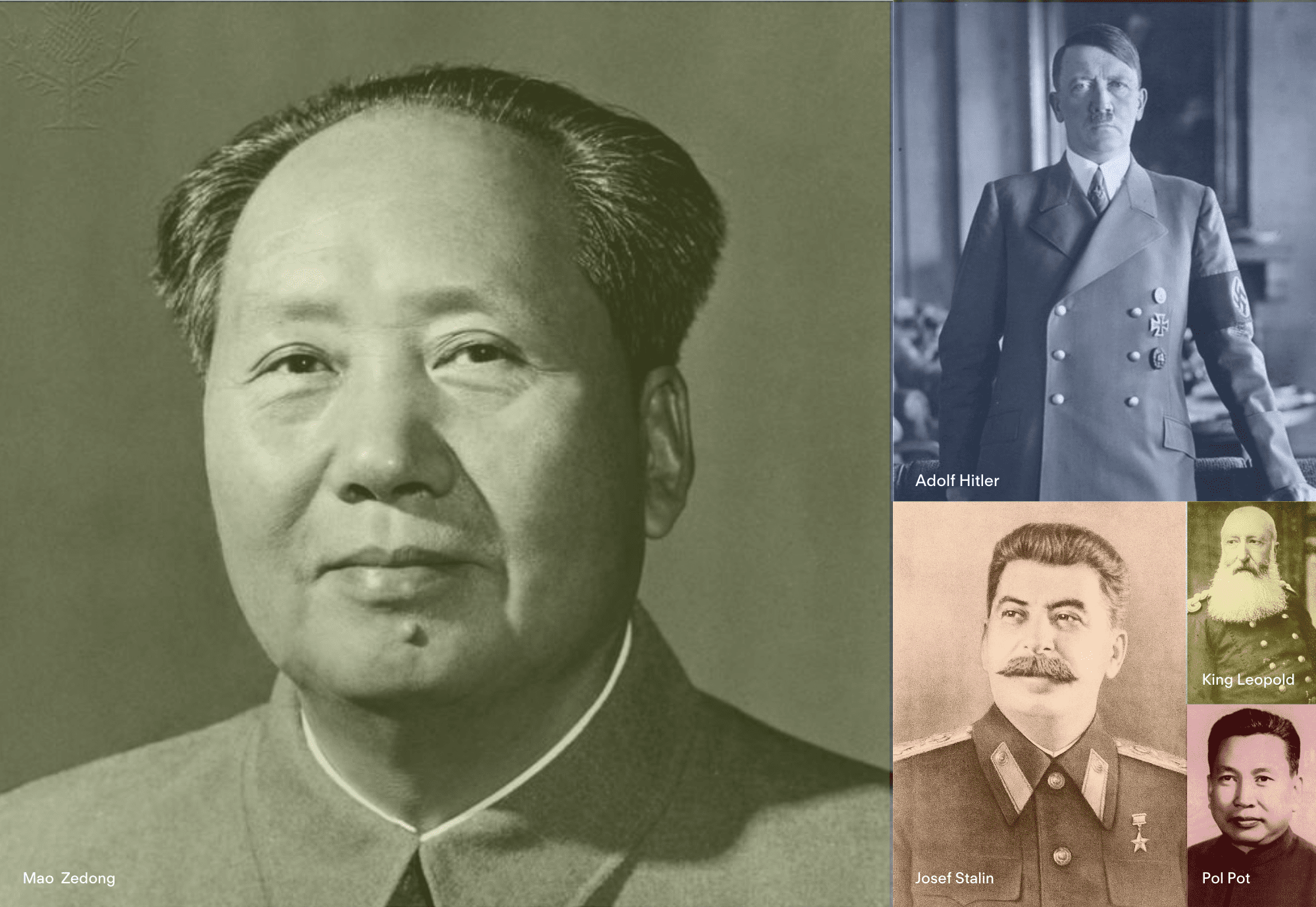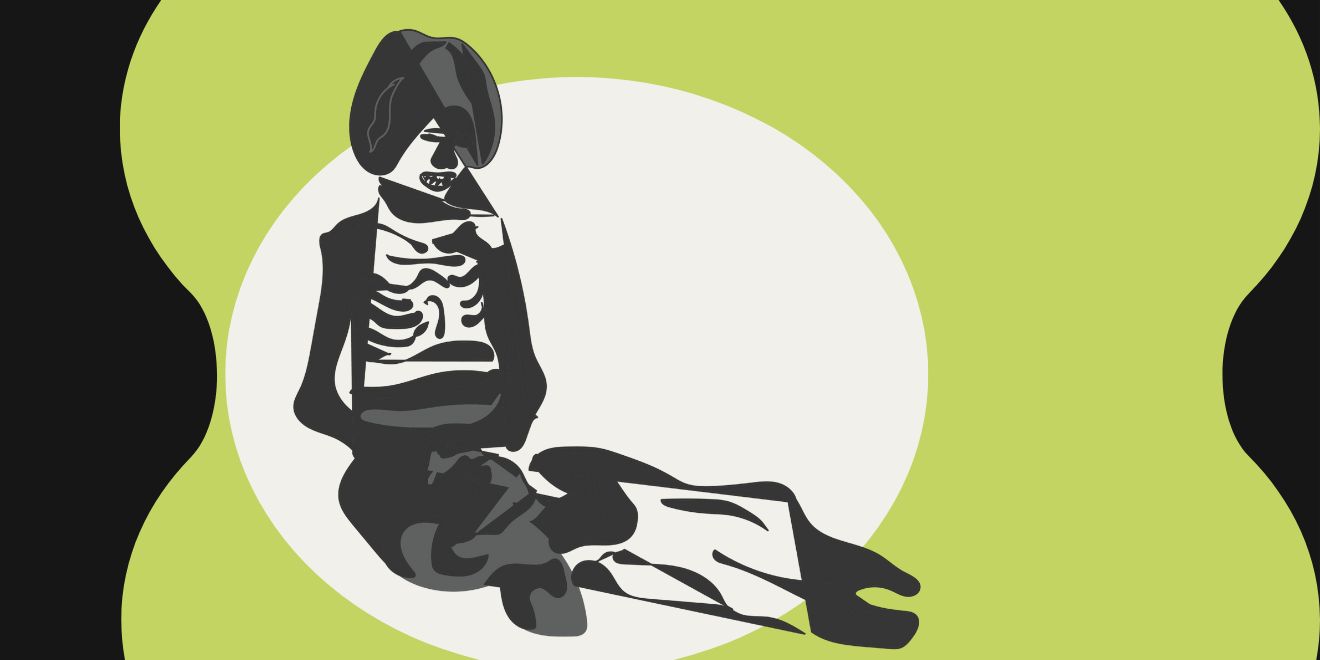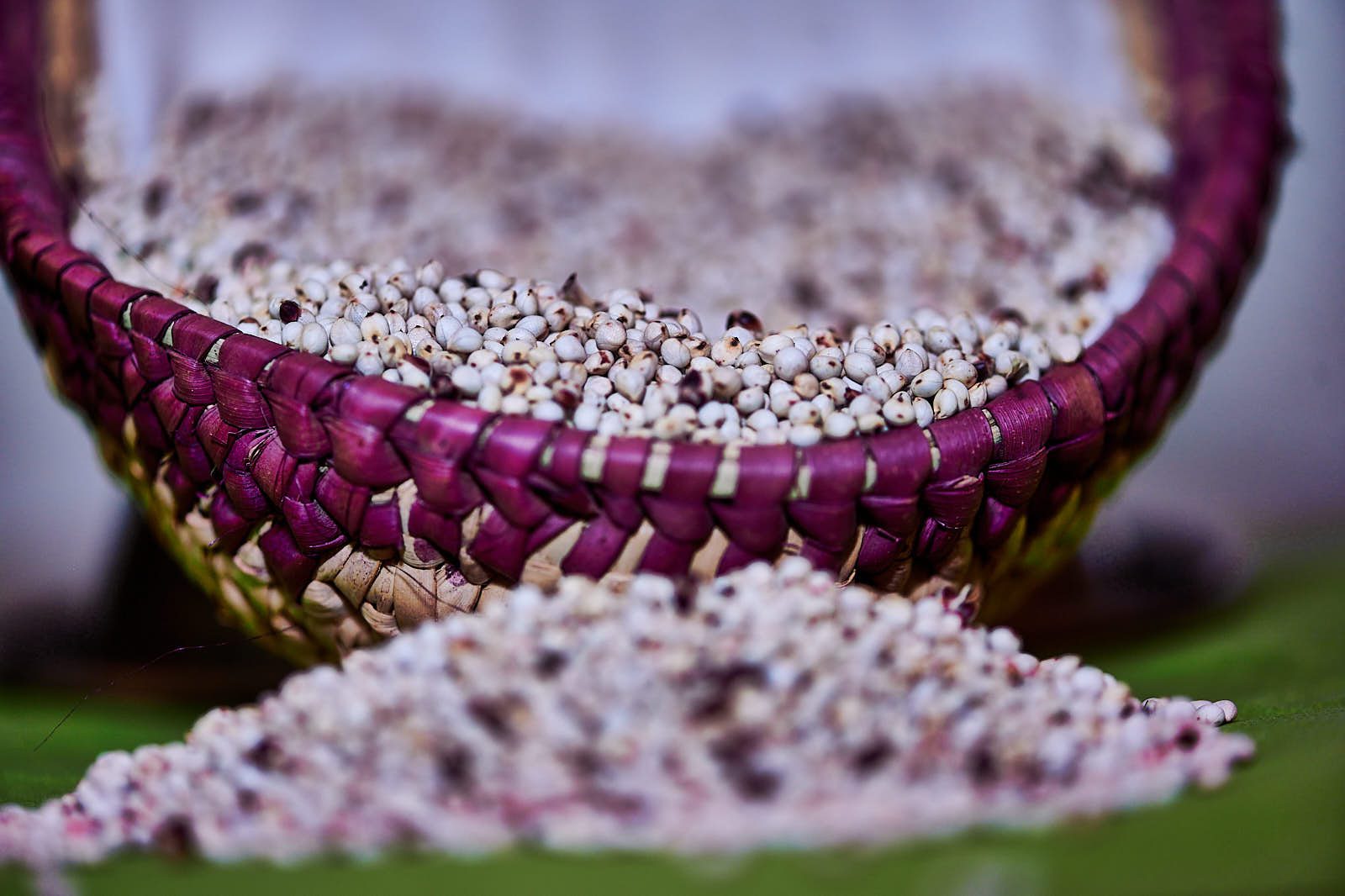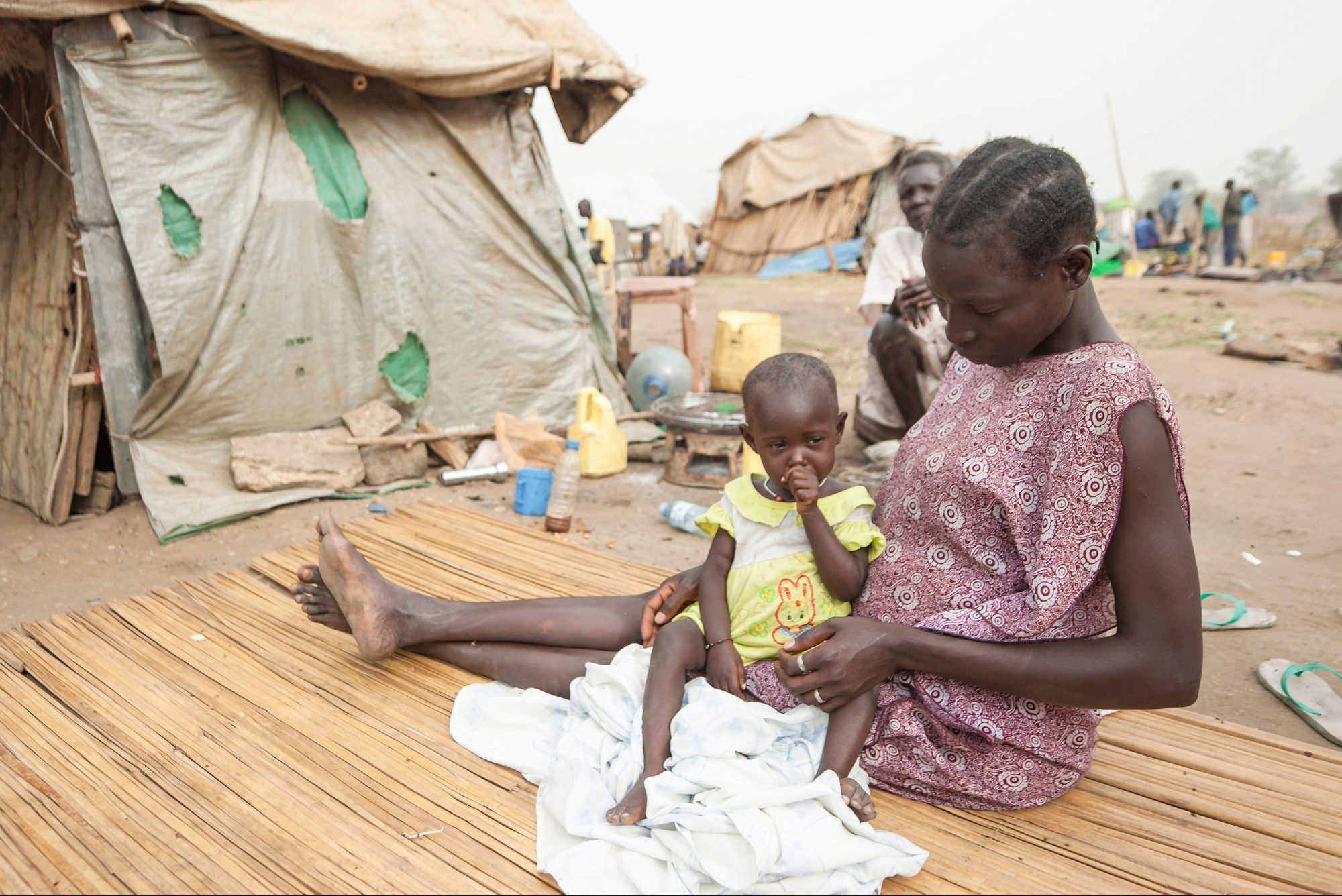Famines are man-made. In our dataset, we rank famines by magnitude. What about ranking the men who made them? Who, in the last 150 years, has murdered the largest number of people by starvation?
The undisputed winner in this gruesome contest, by a margin of about 25 million corpses, is Mao Zedong. It’s not even close. He starved more than the next four men combined—Adolf Hitler, Josef Stalin, King Leopold II of Belgium, and Cambodia’s Pol Pot.
These five men each deliberately made famines that killed more than 1 million people, with a total of 53 million fatalities, almost 40 percent of aggregate global famine mortality since 1870.
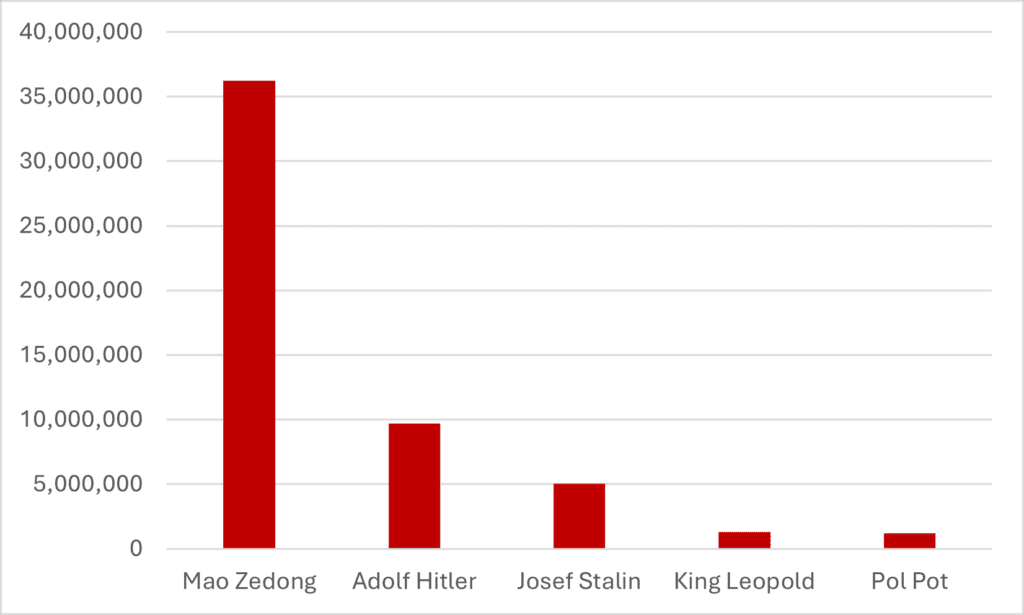
(Banner image size approximate graph representation)
These men made famines entirely deliberately. Sometimes they starved people with genocidal intent. Sometimes they had other purposes in mind. Mao’s ‘great leap forward’ famine of 1958-62, the most terrible in history by the numbers who died, wasn’t organized with the aim of killing, at least not at scale. But Mao made that famine himself.
Adolf Hitler’s ‘Hungerplan’ aimed to starve at least 20 million ‘useless eaters’ in Eastern Europe and the Soviet Union. Fortunately he fell short of that target. Stalin’s famines of the 1930s in Ukraine and Kazakhstan—which we class as genocidal—and in southern Russia at the same time, and the starvation deaths of deportees, add up to more than 5 million fatalities. King Leopold II of Belgium caused 1.3 million starvation deaths. Pol Pot’s Khmer Rouge starved more than a million.
We can expand the criteria for responsibility, to include famines that rulers presided over, for which they bear some measure of responsibility even if they did not create them through deliberate action.
Chinese nationalist leader Chiang Kai-Shek presided over a series of war-famines for which he shared culpability with warlords and the Japanese. Soviet revolutionary leader Vladimir Lenin, takes a large measure of responsibility for the famines of revolutionary Russia. Japanese Emperor Hirohito’s forces caused mass starvation across southeast Asia, and were jointly culpable (with the Chinese) for famine in China and (with France) for famine in Vietnam. British Prime Minister Winston Churchill bears a heavy responsibility for starvation in Bengal in World War Two, as well refusing to provide relief to occupied Greece. U.S. President William McKinley mounted colonial wars in Cuba and the Philippines that saw mass starvation. And Stalin also presided over starvation of Soviet workers and the 1946-47 famines immediately following World War Two—famines he didn’t intend but for which he is indirectly responsible.
Between them, these fourteen men presided over 80 million famine deaths—over half the global total over the last 155 years.
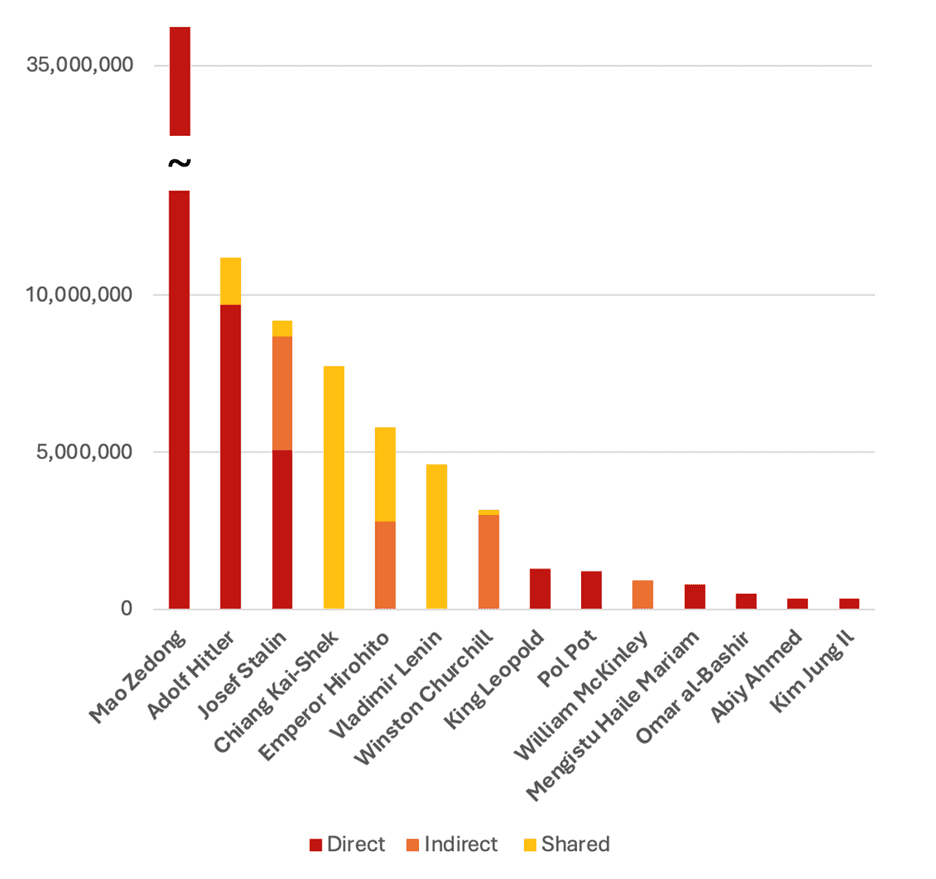
This figure shows starvation deaths with direct, indirect, and shared culpability. For famines with shared responsibility, half the toll is attributed to each party.
And if we take regimes as a whole, the picture shifts again—ten regimes killed more than 90 million people by starvation, 65% of the global total. The British Empire jumps to third place, because of the ‘Late Victorian Holocausts’ in Asia and Africa. The ‘Ethiopian empire’ here includes three governments: Haile Selassie, the Dergue under Mengistu Haile Mariam and the Prosperity Party under Abiy Ahmed.
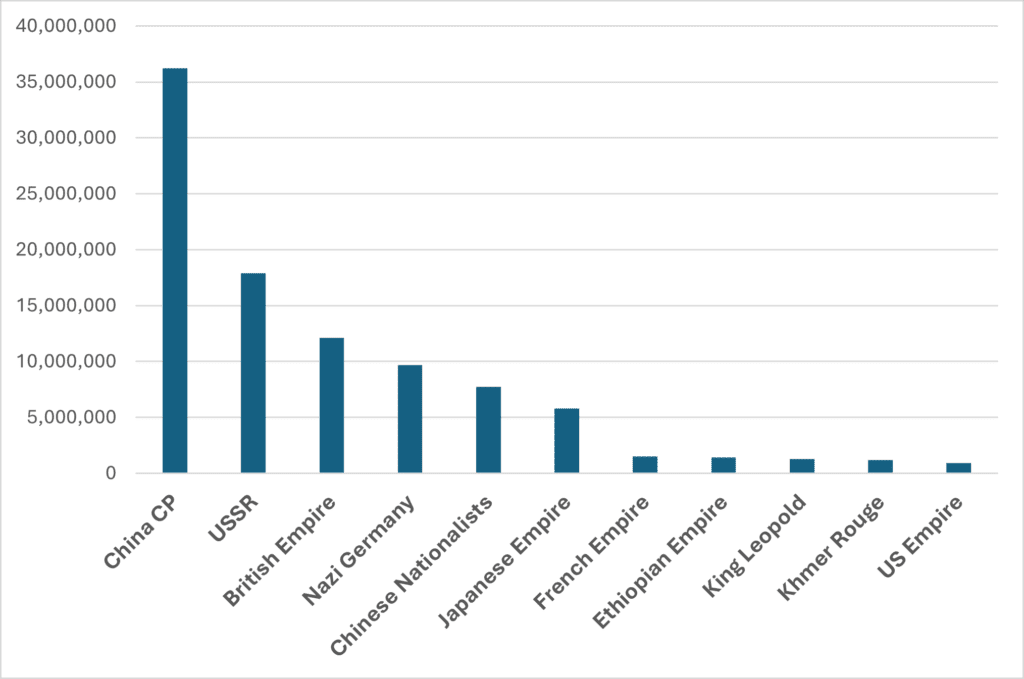
These are all broad-brush aggregates, open to query at the margins. But allow us to tell the story of man-made famines, without losing sight of the men who made them.
